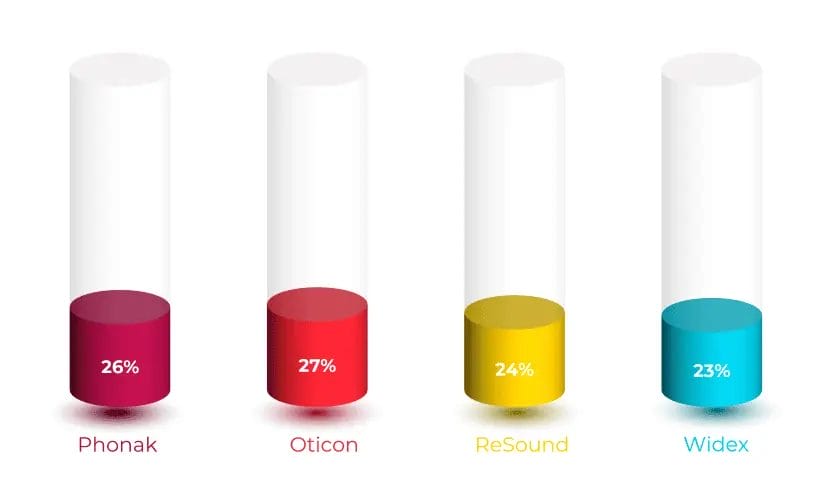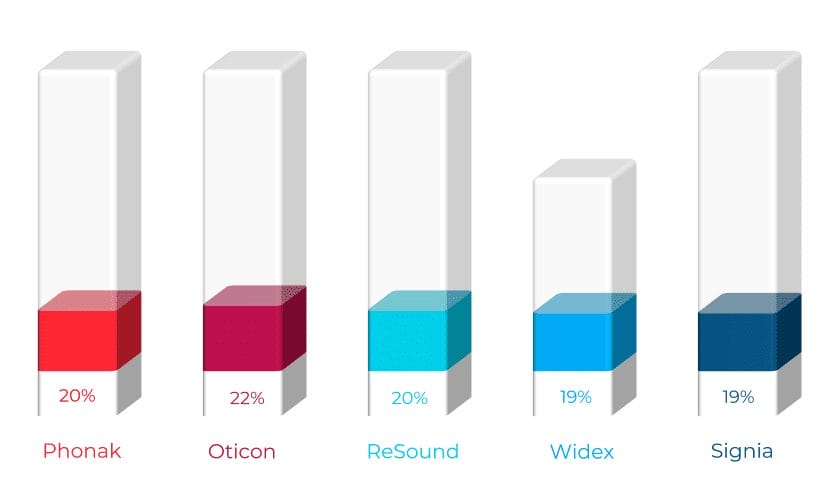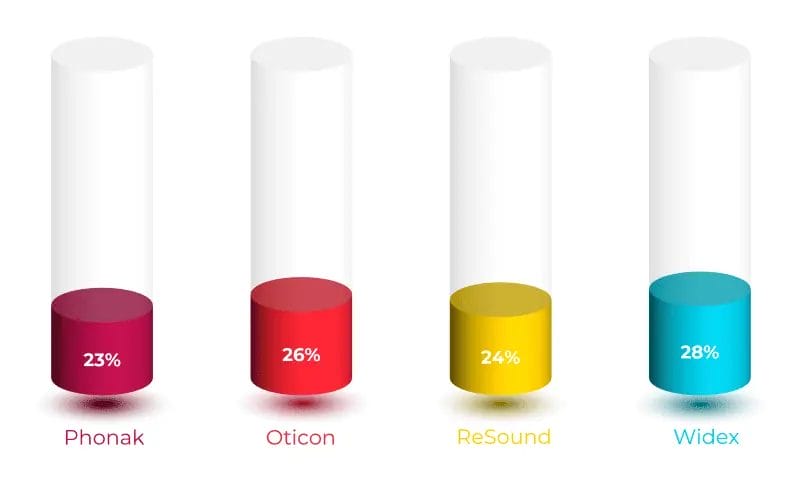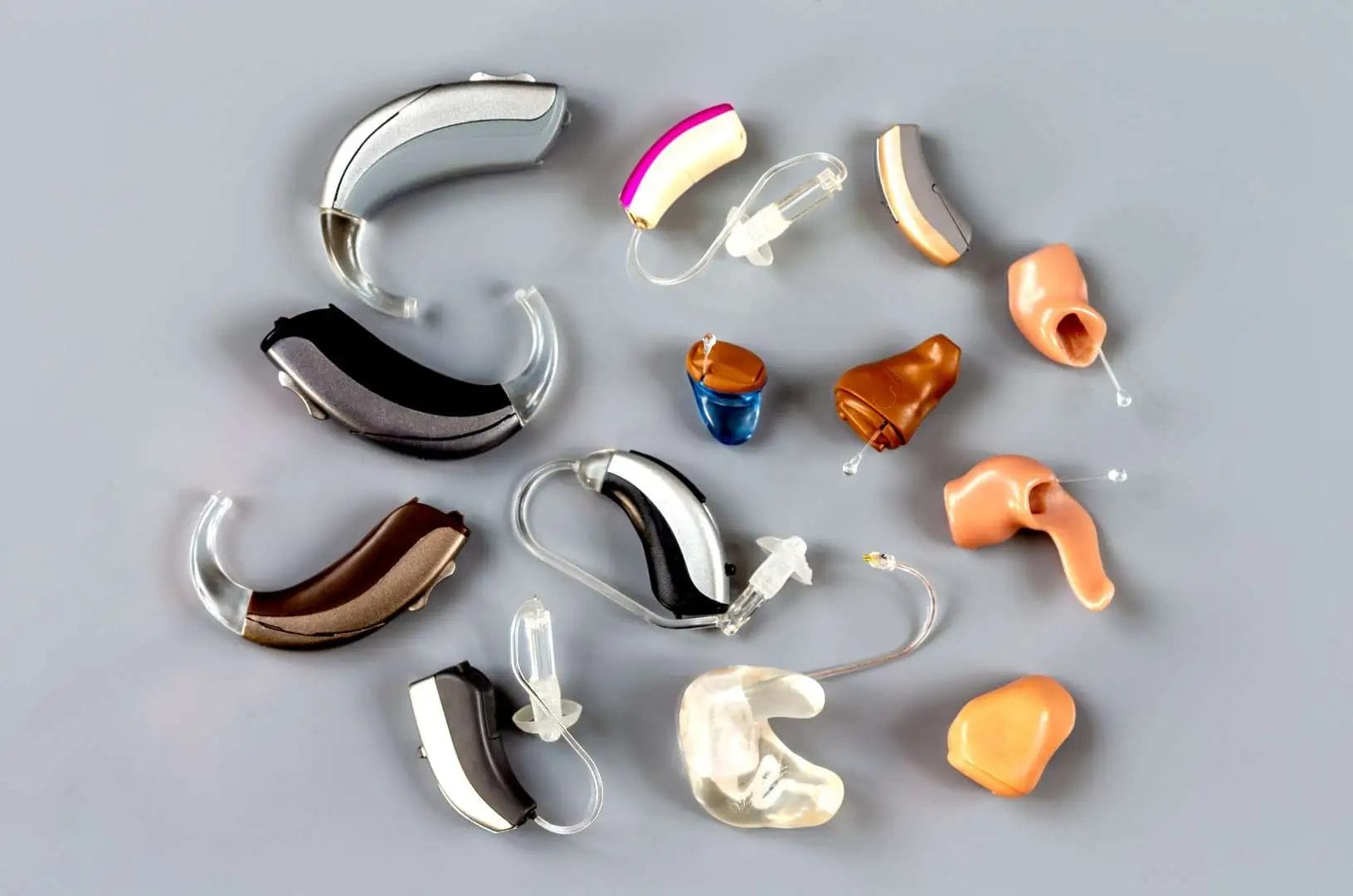Introduction to Hearing Aids
In the vast realm of hearing aids, the pursuit of the best one is not merely a quest for a device but a journey fraught with pitfalls, misinformation, and potential damage to one’s auditory health. Sadly, over 70% of individuals end up with suboptimal or unsuitable hearing aids, a consequence of misinformation and common mistakes like not getting a hearing test first. Today, we embark on a journey to unravel the process of finding the best hearing aid while shedding light on the prevalent errors that can compromise this vital pursuit.
The Quest for the Best Hearing Aid: A Process, not a Device
In the ever-expanding market, where numerous manufacturers offer hundreds of models annually, the task of selecting the best becomes an arduous one for the layperson. As a professor and Doctor of Audiology, my role is not only to educate budding Audiologists on selecting the ideal instrument based on individual needs but also to bridge the gap between theory and the market’s stark reality.
Two Categories of Hearing Aid Seekers
1. The Google Researchers:
If you fall into the category of those who rely on Google for information, the journey begins with a simple online search. beware of the plethora of Sponsored links, ads, and articles, all claiming to offer the best BTE hearing aids. Let’s debunk some common categories touted as the best in 2026.
As of 2026, some of these categories, such as “BEST UNIVERSAL BLUETOOTH HEARING AID,” are outdated. Bluetooth functionality is now a standard feature in all hearing aids. Categorizations like “Severe or Profound Hearing loss” or “Best for Personal Health Monitoring” may seem sensible at first glance. Still, they often divert attention from the fundamental purpose of hearing aids – to enhance auditory abilities and prevent further damage. The task is not as simple as it may appear, and we’ll explore why certain awards may not necessarily equate to the best hearing aids for all.
2. Referral for Hearing Aids by ENT Doctor in India:
For the second group, often referred by ENT doctors to Audiologists, a different set of challenges arises. Many clinics only deal with a single manufacturer, limiting the options for patients. This common practice can lead to incorrect choices, rendering the purchased hearing aids ineffective and, ultimately, a waste of resources.
Unmasking the “Best” Hearing Aids
To unmask the Best hearing aids in different categories we considered Forbes Health website and its categories of hearing aids awarded as Best and put them to test. To show you the best hearing aids we did small research that includes 120 patients in each group and included another two hearing aids manufacturers along with Forbes awarded BEST hearing aid in each category and see if the majority of these subjects do really choose it as the best hearing aid.
The Research: Does the “Best” Hearing Aids claims Hold Up?
We cannot stress enough of the importance of a process called Advanced Hearing Aid Trial in choosing the best instrument.
Advanced Hearing Aid Trial to find the Best Hearing Aids
To ascertain the actual efficacy of these awards, we conducted an Advanced hearing aid trial. Our methodology involved programming 2 to 3 hearing aids from different manufacturers. Then these hearing aids were tested in two stages.
First – Subjective testing: Blind testing, where the programmed hearing aid manufacturers were not revealed to patients and patients will select the best hearing aid based on their preference with the numbers in an order they were fit.
Second – Objective testing: In this stage, patients will be seated in an audiological sound treated booth and complicated speech will be presented to them, then Audiologist will score the percent of correct words repeated by the patients for all programmed hearing aids.
Finally, we combine the results from both subjectively and objectively and we draw the clear winner for that patient.
Results for Best Hearing Aids for Severe to Profound Hearing Loss:

No clear winner emerges in brand preference after 120 patients trial 5 leading hearing aids, Phonak, Oticon, Resound, Widex & Signia. This challenges the notion of a single “best” brand, claimed by anyone or as seen in awards like Forbes Health’s pick (Phonak). This underscores the importance of personalized testing for optimal hearing aid selection.
In our extensive trial of the Best Hearing Aids for Severe to Profound Hearing Loss, conducted with 120 participants, Oticon Xceed was chosen by 32 patients. Following closely, 31 individuals opted for the acclaimed “Phonak Naida Paradise,” endorsed as the best by Forbes, while 29 participants chose ReSound, and 28 preferred Widex.
Despite Forbes’ recognition, only 25.8% of participants selected Phonak Naida Paradise as their preferred hearing aid, revealing a contrast between the perceived best and the users’ actual choices. These results challenge not only Forbes’ endorsement but also any claims asserting a specific hearing aid as the ultimate choice.
Results for Best Hearing Aid for Mild to Moderate Hearing Loss:
A graphical representation of no clear winner emerges in brand preference after 120 patients trial 5 leading hearing aids, Phonak, Oticon, Resound, Widex & Signia. This challenges the notion of a single “best” brand, claimed by anyone or as seen in awards like Forbes Health’s pick (Signia). This underscores the importance of personalized testing for optimal hearing aid selection.

In our comprehensive evaluation of the Best Hearing Aids for mild to moderate cases, we tested 120 patients. The findings revealed that among the leading brands, Phonak garnered 24 votes, Oticon Xceed stood out with 26 preferences, Resound earned 24 selections, and Widex secured 23 votes. Notably, Forbes-endorsed Signia, acclaimed as the best, received 23 endorsements.
Again, contrary to Forbes’ recommendation of Phonak, only 22.5% of participants favored Signia as their ultimate choice. This discrepancy in results challenges not only Forbes’ endorsement but also any claim asserting a particular hearing aid as the best in its category.
Results for Best Hearing Aid for Tinnitus:

Results show no clear winner in brand preference after 120 patients trial 5 leading hearing aids, Phonak, Oticon, Resound, Widex & Signia. This challenges the notion of a single “best” brand, claimed by anyone or as seen in awards like Forbes Health’s pick (Widex). This underscores the importance of personalized testing for optimal hearing aid selection.
In a comprehensive trial focusing on finding the Best Hearing Aid for Tinnitus among 120 patients, the outcomes revealed distinct preferences. Phonak garnered 27 votes, Oticon Xceed was favored by 31 individuals, Resound received 29 votes, and “Widex,” acknowledged by Forbes, was chosen by 33 participants as their top hearing aid.
Contrary to Forbes’ endorsement of Phonak, only 27.5% of respondents favored Widex as the best choice. These findings challenge not only Forbes’ assessment but also any general claims declaring a specific hearing aid as the ultimate solution.
How to choose the Best Hearing Aid in 2026
Confused by conflicting claims? The reality is that the best hearing aid isn’t an absolute designation but a subjective determination. The ultimate decision on the best hearing aid rests with the patient. It’s crucial to understand that everyone’s ears and hearing are unique. Therefore, the best way to determine the most suitable style of hearing aid is through a proper trial involving 2 to 3 different manufacturers.
Mistakes to Avoid while purchasing Hearing Aids
Whether you embark on independent research or rely on ENT doctor referrals, certain pitfalls must be navigated carefully:
1. Question Dubious Claims:
Never blindly trust assertions of having the best hearing aids. Trial and personal experience should be the guiding factors.
2. Beware Single-Manufacturer Clinics:
Avoid establishments dealing exclusively with one manufacturer. Be cautious of clinics dealing exclusively with one manufacturer, even if recommended by your ENT doctor. Such narrow choices may not align with your individual needs.
3. Evaluate Audiologist Credentials:
Verify the credentials of the audiologist and prioritize professional knowledge over the cost of hearing aids. Expertise, not expense, defines hearing aid efficacy.
4. Say No to Steep Discounts:
Beware of enticing discounts as they may not necessarily guarantee the best hearing aids. Quality often comes at a fair price.
5. Don’t Succumb to Blind Marketing:
Resist the allure of ads and marketing gimmicks. Personal hearing aid trial and experience should be the ultimate decider.
Other Factors to Consider
When selecting a hearing aid, some key factors to consider include the style of the hearing aid, the technology used, and your budget. Hearing aids come in various styles, such as behind-the-ear (BTE), in-the-ear (ITE), and completely-in-the-canal (CIC). Each style offers its own advantages and limitations, so it is vital to find the one that suits your preferences and hearing needs.
Additionally, you should take into account the functionality of the hearing aid and the latest features and technologies it offers. Rechargeable hearing aids, for example, provide convenience and eliminate the need for frequent battery changes. Assessing the cost of hearing aids is also important, as it can vary depending on the brand, style, and technology used.
Different Types of Hearing Aids
There are different types of hearing aids available on the market, each catering to specific types and degrees of hearing loss. For mild to moderate hearing loss, in-the-ear and behind-the-ear hearing aids are commonly recommended. These types of hearing aids are discreet and can be customized to fit your preferences. For individuals with profound hearing loss, more powerful options such as receiver-in-canal (RIC) hearing aids may be suitable.
Understanding Your Degree of Hearing Loss
Before purchasing a hearing aid, it is crucial to understand the degree of your hearing loss. Mild to moderate hearing loss may be easily manageable with over-the-counter (OTC) hearing aids or affordable hearing aid models. On the other hand, severe to profound hearing loss requires a more specialized approach, and prescription hearing aids are typically recommended.
What to Expect from Hearing Aids in 2026
Hearing aid technology continues to advance rapidly, and the models available today offer impressive features and benefits. In 2026, we can expect even more advancements in this field. The latest hearing aids provide improved sound quality, enhanced connectivity options, and better speech recognition capabilities. This means that wearing hearing aids will allow you to engage more fully in conversations, enjoy music and other audio content, and improve your overall hearing experience.
New Features and Technologies
The future of hearing aid technology is exciting, with promising advancements in areas such as artificial intelligence, noise reduction, and automatic adjustments based on the listening environment. Some hearing aids may come equipped with sensors that detect the wearer’s movement and adjust settings accordingly. This ensures optimal performance in various situations, whether you’re in a noisy restaurant or a quiet room.
Benefits of Rechargeable Hearing Aids
Rechargeable hearing aids have gained popularity in recent years due to their convenience and environmentally friendly nature. Instead of constantly replacing disposable batteries, these hearing aids can be easily charged overnight, offering a full day’s worth of power. The best rechargeable hearing aids eliminate the need to carry spare batteries and drastically reduce waste. Rechargeable hearing aids are particularly beneficial for individuals with dexterity issues or those who prefer a hassle-free solution.
Latest Hearing Aid Styles
Along with the technological advancements, hearing aid manufacturers are also focusing on creating stylish and discreet designs. Modern hearing aids are sleek, compact, and often come in various color options to match your personal style. Some are so small and well-fitted that they are virtually invisible when worn. This allows users to feel more confident and comfortable while wearing their hearing aids.
Comparing Top Hearing Aid Brands
When researching hearing aids, it is essential to explore different brands and their offerings. Several reputable hearing aid manufacturers provide high-quality devices that cater to various needs and preferences. Let’s take a closer look at some of the top hearing aid brands:
Phonak Hearing Aids
Phonak is a well-known hearing aid brand that offers a wide range of products suitable for different types of hearing loss. Their hearing aids are known for their advanced sound processing technology, Bluetooth connectivity, and long battery life. Phonak hearing aids are designed to provide a natural listening experience, allowing wearers to understand speech and enjoy various environments more effectively.
ReSound Hearing Aids
ReSound hearing aids combine innovative technology with sleek designs. Their devices feature excellent sound quality, wireless connectivity, and personalized settings that can be adjusted using a smartphone app. ReSound hearing aids are designed to adapt to different listening environments, ensuring optimal sound clarity and comfort for the wearer.
Oticon Hearing Aids
Oticon is another prominent hearing aid manufacturer known for its commitment to providing cutting-edge technology. Their hearing aids incorporate features such as feedback cancellation, noise reduction, and 360-degree sound processing. Oticon hearing aids are designed to deliver a clear and natural hearing experience, even in challenging listening environments.
How Hearing Aids Work
Understanding how hearing aids work is essential for their effective use and maintenance. Hearing aids are essentially small electronic devices that amplify sound and deliver it to the ears. They consist of a microphone, amplifier, receiver, and battery. The microphone picks up sound waves from the environment, which are then converted into electrical signals through the amplifier. These signals are then delivered to the ear through the receiver, allowing individuals with hearing loss to perceive sounds more clearly.
The Functioning of Hearing Aids
Hearing aids use advanced signal processing algorithms to adapt and amplify specific frequencies based on the wearer’s hearing loss. They can distinguish speech from background noise, reduce feedback or whistling sounds, and provide adjustable volume settings. Many modern hearing aids also feature directional microphones, which allow wearers to focus on sounds coming from a specific direction.
Using and Maintaining Hearing Aids
Proper usage and maintenance of hearing aids are crucial for their performance and longevity. It is important to follow the manufacturer’s instructions for cleaning and caring for your specific model. Regular cleaning and keeping the device free from moisture and earwax buildup will ensure optimal functioning. Additionally, it is essential to have regular check-ups with a hearing care professional to monitor your hearing health and make any necessary adjustments to your hearing aids.
Determining the Right Hearing Aid for You
Choosing the right hearing aid for your needs is a personalized process that should be done in consultation with a hearing care professional. They will conduct a comprehensive hearing test to determine your degree of hearing loss and recommend suitable options. It is important to try different hearing aids and assess their comfort, fit, and sound quality before making a final decision. By working closely with a hearing care professional, you can find the hearing aid that best suits your unique needs and preferences.
Understanding Different Types of Hearing Loss
Hearing loss can vary in type and severity, and it is important to understand the different types to determine the most appropriate solutions. Let’s take a closer look at the various types of hearing loss:
Mild to Moderate Hearing Loss: Seeking the Right Solution
Individuals with mild to moderate hearing loss often experience difficulty hearing soft or distant sounds. Hearing loss can make it challenging to follow conversations, especially in noisy environments, a reason to look for a hearing aid. Fortunately, there are several hearing aid options available that can effectively address this degree of hearing loss. It is crucial to seek the right solution and consult with a hearing care professional to find the most suitable hearing aid.
What Type of Hearing Aid is Right for Me?
The type of hearing aid suitable for you largely depends on the level of hearing loss experienced. Various types of hearing aids come designed to cater to mild to severe hearing loss. It is crucial to have an expert hearing care professional conduct a thorough hearing test to accurately understand your condition.
Understanding Your Level of Hearing Loss and Appropriate Hearing Aid
Be it profound hearing loss or just mild to moderate hearing loss, the type of hearing aid for you differs significantly. Audiologists or hearing care professionals can conduct a comprehensive hearing test, revealing the precise degree of hearing loss you are facing. It can accordingly guide you in choosing the best hearing aid on the market.
Different Hearing Aid Styles and Their Uses
Hearing aid style significantly impacts hearing aid usage. There are different types of hearing aids available based on your needs, which you can buy after consulting your hearing provider. Keep in mind style factors including where you wear your hearing aids, the level of hearing improvement offered, and if they can cater to mild to profound hearing loss.
RIC Hearing Aid: A Suitable Type of Hearing Aid for Profound Hearing Loss
RIC (Receiver in Canal) Hearing Aids are suitable for people experiencing severe to profound hearing loss. These devices amplify sound, helping users ascertain auditory signals effectively, proving a crucial component in the vast expanse of hearing aid technology.
Conclusion
In conclusion, the pursuit of the best hearing aid demands an informed and personalized approach. Do not succumb to external influences; let your unique hearing needs guide your decision-making process. Remember, your hearing health is a valuable asset, and investing time in the right decision can save you from future complications.




